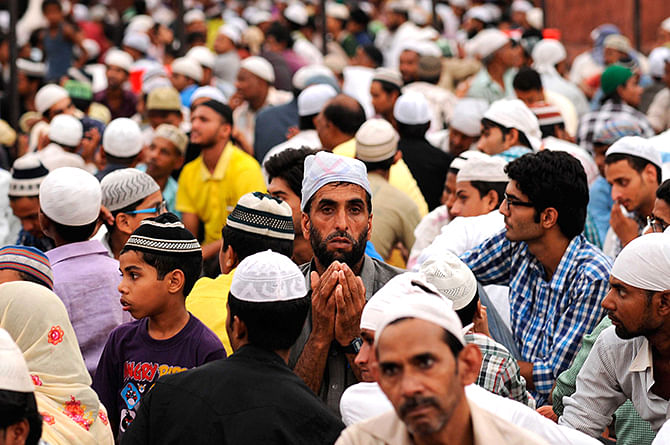Shariat courts have no legal sanctions: Indian SC
Shariat courts have no legal sanctions: Indian SC

India’s top court today ruled that shariat courts have no legal sanction and it cannot issue fatwas trampling on individuals’ rights.
The court’s remarks came in response to a petition filed by a Delhi-based advocate who challenged parallel religious courts run by institutions like the Darul Qaza and Darul-Iftaa.
A Supreme Court bench headed by Justice CK Prasad held that such institutions cannot issue diktat affecting the rights of the people and their decrees will be invalid and also illegal.
The bench made it clear that fatwas cannot be used to punish innocent people, reports our Delhi correspondent.
“No religion including Islam encourages people to punish innocents through decrees not sanctioned by law,” it said.
The bench said clerics or institutions can issue fatwas only if parties willingly approach them for adjudication of disputes but even in that case it is not legally binding.
While reserving its verdict on the petition filed by advocate Vishwa Lochan Madan, the bench had earlier observed that fatwas or religious decrees being issued by Muslim clerics were a “matter of faith and choice” and it would be difficult for a court to issue blanket orders banning them.
It had said that a court can interfere only when somebody’s rights are violated by these decrees.
“Which law gives power to issue fatwa and which statute gives pundit power to make horoscope? Court can only say that the state will protect the people if one is subjected to suffering due to fatwa…These are are political and religious issues,” it had said.
Madan, in his petition, had challenged the constitutional validity of shariat courts for allegedly running a parallel judicial system in the country.
He also said fundamental rights of Muslims should not be controlled or restricted by fatwas issued by qazis or religious arbiters appointed by Muslim organisations.
Madan argued Darul Qaza and Darul-Iftaa function in 52 to 60 districts which have a sizeable Muslim population.
He said Muslims cannot contest these decrees or fatwas, and alleged these interfere with the life and liberty of citizens.